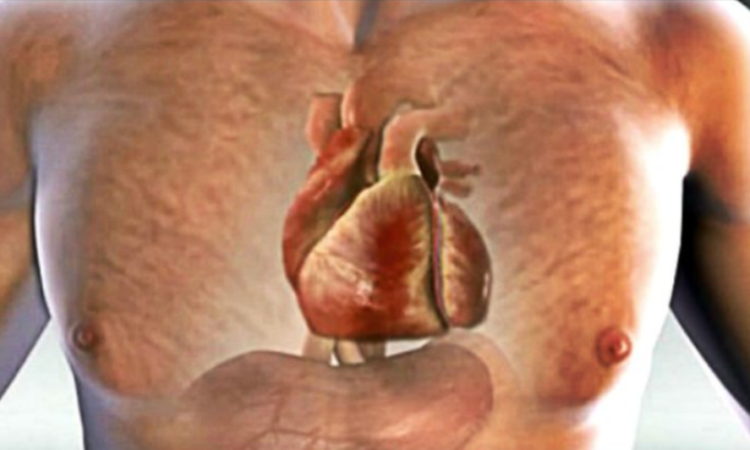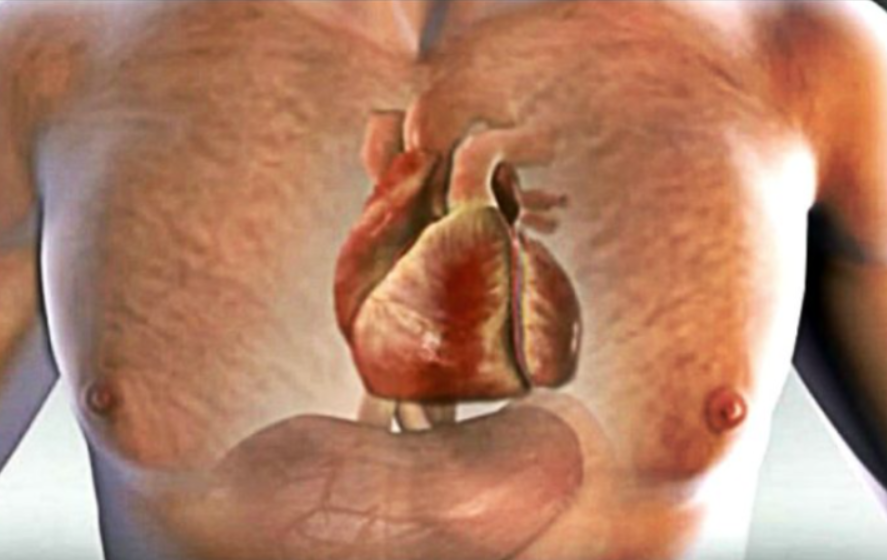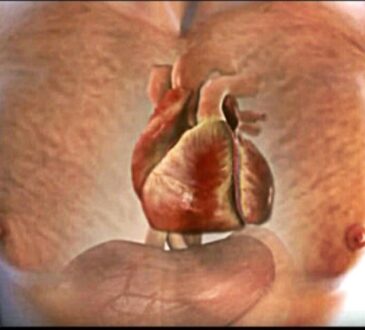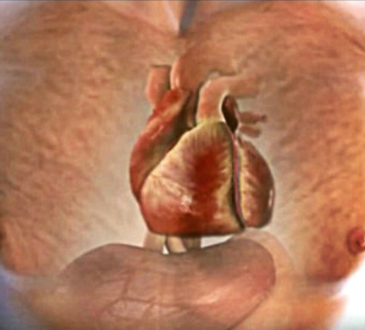
Detecting Silent Heart Attacks: Signs and Prevention
Imagine it’s a regular day. You get a call from your friend informing you about his hospital visit. He was just going to visit the doctor for indigestion. But the reports came in saying that he suffered a heart attack a few weeks ago. You’re shocked and thinking, what could have possibly gone wrong? Believe it or not, your body gives you subtle signs right before a silent heart attack. Do cold sweats mean anything? Can pain in the right arm be a sign? We are discussing all that and more.

Understanding Silent Heart Attacks
Want to know what a silent heart attack is? Most movies show a heart attack by someone clutching their chest real tight, gasping for breath, or blacking out. But it’s not always so dramatic. Contrary to Hollywood heart attacks, a silent heart attack has zero to minimal symptoms. Doctors call it silent myocardial ischemia. It is quite difficult to believe that something as huge as a heart attack can happen without you even knowing it. Research says that 45% of heart attacks are silent. The chances of women getting struck by one are much higher than men.
Causes and Risk Factors
The symptoms of a silent heart attack are so mild they’re often confused for some other less serious problem. But what actually causes silent heart attacks? Your heart is fueled by oxygen-rich blood. Cholesterol-rich plaque starts collecting in your coronary arteries. When platelets from your blood start adhering to the plaque site it forms a blood clot and may hinder blood flow. Your heart muscles cannot function optimally with diminished or no oxygen. They lose their capacity to pump blood. This causes a silent heart attack. The longer your heart is without oxygenated blood the more gruesome the effects. So, just like any other heart attack, it can be said that atherosclerosis is the root cause.
Most times, you will be able to figure out the reason for a deadly heart attack. It will either be your cigarettes, junk food that’s loaded with salt, or stress. Studies show that if you are a type 2 diabetic then it significantly increases your chances of a silent heart attack. But that’s not always the case. A few things that can push you towards a silent heart attack are sometimes out of your control. Family history of heart disease, preeclampsia during pregnancy, and covid-19 can make the situation tricky. Also, if you are a postmenopausal woman above 55 years of age or a man above 45 years of age then your chances of getting a heart attack increase.
Recognizing Signs and Symptoms
Do you want to hear some shocking statistics? One person gets a heart attack every 40 seconds in the United States alone. But your heart is much more intelligent than you think. It will let your body know before shutting down completely. If you keep a close eye on some unusual symptoms you might be successful in preventing a disaster. You don’t have to wait for the cardiac treatment to begin after a heart attack. Preventative cardiac care may successfully stop you from getting one. But how do you know when you’re having a silent heart attack? Here are a few signs that the American Heart Association asks to look out for.
1. Persistent Flu-like Symptoms
Do you have a persistent flu? Herbal teas and hot steam inhalation at home might not fully help. Every one of us feels under the weather once in a while. It can be due to excessive exposure to cold or catching it from someone. The influenza virus is responsible for making you cough. You may experience continuous pain in the throat and feel nauseated. The symptoms usually take a week or two to go away completely. But if you are feeling choked up, even after a long time, it’s best to see your doctor.
2. Persistent Bloating
Have you been feeling bloated for a while? When your heart is not able to pump enough blood there will be fluid accumulation in your hands, feet, and around the belly. The water weight makes your regular clothes fit differently. If you’re feeling uncomfortable for a long time then it won’t be a bad idea to visit your doctor.
3. Excessive Sweating
Are you sweating a lot these days? Sweating is a great way to get rid of the toxins from your body. It’s your body’s natural response to physical exertion or too hot and humid climates. But if you are sweating rivers, even when the thermostat is turned down, you need to act quickly.
4. Persistent Heartburn
There is also a reason why heartburn should never be ignored. Having spiced sausages or sriracha meatballs for dinner can cause a burning sensation in your digestive tract. So much so that it causes discomfort in your chest. Chest pains are the cardinal signs of a heart attack.
5. Atypical Symptoms in Diabetics
Advanced stages of diabetes are most commonly accompanied by neuropathy. This means your nerves are no longer receptive to stimuli. You may not feel anything after touching something boiling hot or after a needle prick. The same applies to a heart attack as well. A diabetic may not feel a crushing heart attack that strongly. The nerve damage will successfully silence it. The pressure, squeezing, and fullness in your heart may seem just like another digestive issue.
6. Radiating Pain
You might have heard that pain during a heart attack radiates only to the left arm. But that’s not always the case. Sometimes the pain may occur in the center of the chest, the right hand, jaws, teeth, abdomen, and the back, too. This backache is different from the one that you get after sitting at your desk for too long. This is called angina pectoris.
7. Persistent Fatigue
Moving along, feeling tired should never be dismissed as unimportant. It could mean something less serious but the probability of a silent heart attack cannot be denied. This tiredness is much different than working through those extra hours at the office or running an extra mile on the treadmill.
Seeking Medical Help
If you experience any of these then don’t sit on it. It’s best to go to the hospital. Your doctor will run a few tests to find out what’s going on. Generally, an electrocardiogram, CT scan, and MRI are the gold standards when looking into a heart attack. Your heart also sends messengers to the bloodstream that can be picked up via blood tests before and after a silent heart attack. Those are called cardiac biomarkers. Stress tests and coronary angiograms also help with diagnosis. And if you’re having a real cardiac arrest a team of heart doctors will be involved.
Treatment and Aftermath
During a silent heart attack the patient may never even visit the hospital and is still alive. This does not mean you can just dismiss silent heart attacks as something trivial. You might feel that you have conquered the number one killer but be warned it has dangerous after effects. Did you know that a silent heart attack increases your chances of getting another one by 35%? The duration of a heart attack is different for everyone. Most commonly it may last from about 15 to 30 minutes. Anything beyond that causes irreversible changes.
Prevention
In some people, it may cause the heart to lose its normal rhythm and develop a condition called cardiac arrhythmia. Other long-term
effects also increase your risk of a stroke later in life. Want to know how to reduce the risk of a silent heart attack? Make a healthy switch today. Start exercising. Begin with walking around the block. Slowly start brisk walking. In a few days, you will feel motivated to jog. Take up meditation or yoga. They will have a positive effect on your heart health. Mix it up with aerobics, dance, or Zumba. Lastly, don’t forget to add up some resistance training. Focus on eating nutrient-dense, high fiber foods. Fiber from raw vegetables can keep your heart in great shape. Remember to have Omega 3-rich foods like salmon, avocado, and walnuts regularly. Say no to unnecessary snacking and sweets. Have a piece of fruit when you have a sweet craving. It will help you manage your blood glucose better. If you manage your weight, blood glucose levels, cholesterol, and blood pressure the atherosclerotic plaque can be stopped from turning into blockages. Also, quit tobacco. Studies have shown smoking tobacco causes narrowing of the arteries and supplies less oxygenated blood to vital organs. Our aim here is to get maximum oxygenated blood running through your system. And smoking clearly won’t help.
Besides your heart, your brain also needs nurturing and care unless you want to fall prey to dementia, Alzheimer’s, or stroke.
Continuing the Conversation
How often do you get regular heart- checkups? Let us know in the comments below.




